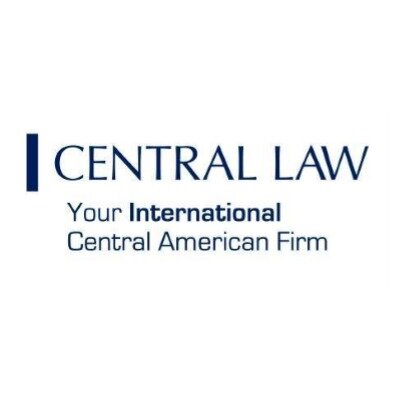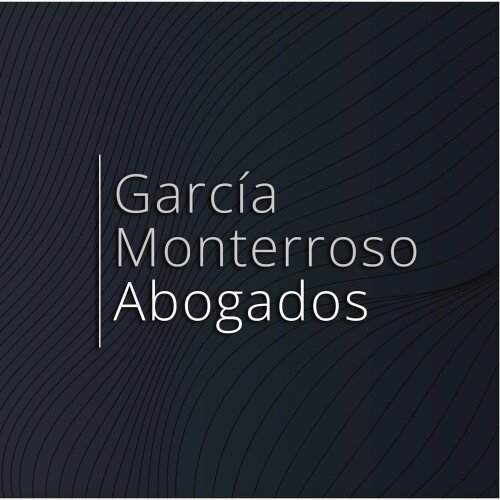Best Art & Cultural Property Law Lawyers in Guatemala City
Share your needs with us, get contacted by law firms.
Free. Takes 2 min.
List of the best lawyers in Guatemala City, Guatemala
About Art & Cultural Property Law in Guatemala City, Guatemala
Art & Cultural Property Law in Guatemala City encompasses the legal frameworks that protect and regulate artistic and cultural heritage. Guatemala, rich in Mayan history and diverse cultural artifacts, prioritizes safeguarding its cultural assets. The legal landscape includes regulations on the export and import of cultural properties, protection of archaeological sites, preservation of indigenous art forms, and intellectual property rights related to artwork. These laws aim to maintain the integrity and value of Guatemala's cultural patrimony while balancing the interests of private collectors, museums, and indigenous communities.
Why You May Need a Lawyer
There are several situations where obtaining legal advice in Art & Cultural Property Law is crucial in Guatemala City:
- Selling or purchasing art that might have cultural significance.
- Legal disputes over the ownership of cultural property, especially in cases involving inheritance or discovery.
- Importing or exporting artwork that may be subject to national and international regulations.
- Protection of intellectual property rights for artists and creators under copyright, trademark, or patent law.
- Compliance with laws related to the excavation or restoration of archaeological sites.
- Resolving conflicts between developers and heritage conservation laws during construction projects.
Local Laws Overview
Key aspects of Art & Cultural Property Law in Guatemala City include:
- National Cultural Heritage Law: This law protects cultural heritage, including monuments, paintings, sculptures, and any material considered of historical or cultural value. It mandates registration and governmental oversight for certain transactions and acts affecting these assets.
- Export/Import Regulations: Strict regulations govern the movement of cultural properties across borders. Unauthorized exportation of artifacts is illegal, often requiring permits and provenance documentation.
- Intellectual Property: Protection under the Law on Copyrights and Related Rights supports the rights of artists over their creations, ensuring they can control and monetize their work.
- Archaeological Protection: Specific regulations preserve archaeological sites, restricting unauthorized excavations or alterations, often necessitating collaboration with the Ministry of Culture and Sports.
- Indigenous Rights: The rights of indigenous communities over their cultural expressions and artifacts are recognized, requiring special considerations and respect in legal matters.
Frequently Asked Questions
What is considered cultural property in Guatemala?
Cultural property includes any artifact, work of art, or site of historical, cultural, or archaeological significance to the country's heritage and identity.
Do I need a license to export art from Guatemala?
Yes, exporting art, particularly items categorized as part of the cultural heritage, requires specific government permits to ensure protection against illegal trafficking.
Can I legally purchase indigenous art from Guatemalan artists?
Yes, you can purchase indigenous art, provided it is legally sourced and the transaction complies with all relevant intellectual property and cultural protection laws.
What happens if a cultural artifact is found during construction?
Discovery of cultural artifacts mandates immediate notification of the Ministry of Culture and Sports for assessment. Excavation or construction must halt until further instruction.
How can artists protect their work under Guatemalan law?
Artists can protect their creations by registering them with the national intellectual property office, providing legal grounds to enforce copyrights or seek damages for infringement.
What should I do if I possess a family heirloom thought to be culturally significant?
Consult a local lawyer to understand any legal obligations or rights concerning the heirloom, especially if there is a desire to sell or donate it.
Is it legal to collect archaeological objects in Guatemala?
Collecting archaeological objects without permission is illegal and punishable by law. All archaeological finds are considered state property and must be reported.
Who enforces cultural property laws in Guatemala?
The Ministry of Culture and Sports, along with law enforcement agencies, is responsible for enforcing cultural property laws in Guatemala.
Can foreign entities own cultural property in Guatemala?
Ownership of cultural property by foreigners is regulated, often with restrictions to ensure preservation and protection within national boundaries.
How are indigenous communities involved in cultural property decisions?
Indigenous communities are increasingly involved through consultations and participation in decision-making processes regarding their cultural materials and expressions.
Additional Resources
Consider reaching out to the following for further guidance or information:
- Ministry of Culture and Sports: The national authority on cultural preservation and legal frameworks surrounding cultural property.
- Intellectual Property Registry: For issues related to copyright and protection of artistic works.
- Local Universities: With departments dedicated to archaeology, anthropology, and cultural studies, they often offer expert opinions and resources.
- Non-Governmental Organizations: Such as those focused on heritage conservation and indigenous rights for practical assistance and advocacy.
- Legal Aid Clinics: For personalized advice and possibly pro bono assistance regarding cultural property law.
Next Steps
If you need legal assistance in Art & Cultural Property Law, consider the following steps:
- Identify and gather documentation or evidence related to your concern, such as ownership papers, provenance documentation, or any relevant correspondence.
- Research and contact a lawyer or law firm experienced in Art & Cultural Property Law, preferably one with a strong understanding of local regulations in Guatemala City.
- Schedule a consultation to discuss your situation, clarify your rights, and explore possible courses of action.
- Follow legal advice and gather any additional documentation needed to support your case or inquiry.
- Stay informed about any changes in law or policy that may affect your rights or responsibilities regarding art and cultural property.
Lawzana helps you find the best lawyers and law firms in Guatemala City through a curated and pre-screened list of qualified legal professionals. Our platform offers rankings and detailed profiles of attorneys and law firms, allowing you to compare based on practice areas, including Art & Cultural Property Law, experience, and client feedback.
Each profile includes a description of the firm's areas of practice, client reviews, team members and partners, year of establishment, spoken languages, office locations, contact information, social media presence, and any published articles or resources. Most firms on our platform speak English and are experienced in both local and international legal matters.
Get a quote from top-rated law firms in Guatemala City, Guatemala — quickly, securely, and without unnecessary hassle.
Disclaimer:
The information provided on this page is for general informational purposes only and does not constitute legal advice. While we strive to ensure the accuracy and relevance of the content, legal information may change over time, and interpretations of the law can vary. You should always consult with a qualified legal professional for advice specific to your situation.
We disclaim all liability for actions taken or not taken based on the content of this page. If you believe any information is incorrect or outdated, please contact us, and we will review and update it where appropriate.














